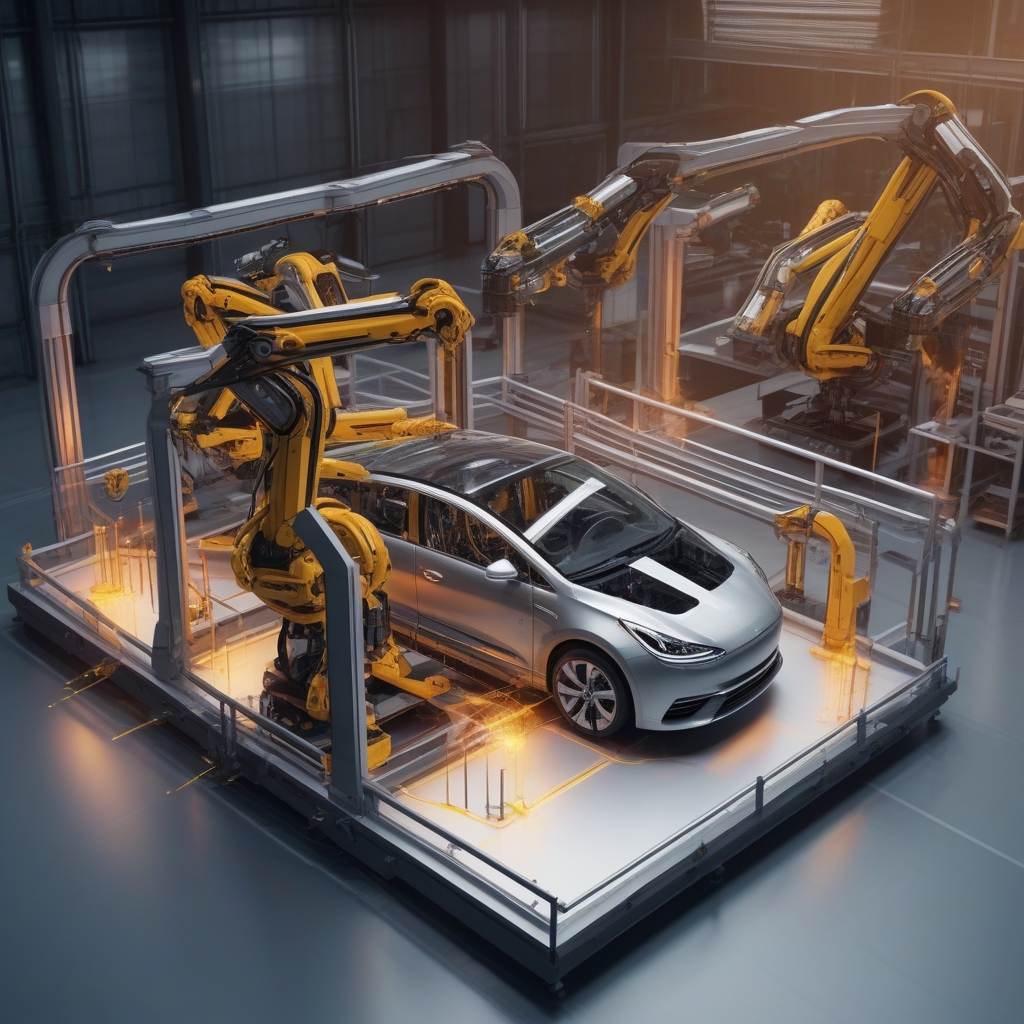The Rise of AI in Automotive Manufacturing
The global automotive industry is undergoing a transformation, driven by rapid advancements in artificial intelligence (AI) and automation technologies. According to recent reports, the AI-driven automotive automation market is forecasted to reach an astonishing USD 2.45 billion. This growth is not only reshaping the traditional automotive manufacturing processes but also paving the way for innovative solutions that enhance efficiency, precision, and overall production flexibility.
The Integration of AI in Automotive Plants
The integration of AI in automotive manufacturing plants is revolutionizing how vehicles are produced. AI-enabled systems and tools are being deployed to manage complex tasks, streamline operations, and reduce human errors. Here are some of the key ways through which AI is boosting the automotive automation market:
- Robotic Process Automation (RPA): Robotic arms equipped with AI algorithms are capable of performing intricate assembly tasks with remarkable precision. These robots are programmed to handle tasks such as welding, painting, and component assembly, ensuring consistency and improving production speeds.
- Predictive Maintenance: AI-driven analytics can predict equipment failures before they occur. By monitoring machinery and analyzing performance data, AI systems can alert maintenance teams about potential issues, thereby reducing downtime and maintaining continuous production flows.
- Quality Control: AI technologies are enhancing quality control in automotive manufacturing. Machine learning models can analyze images of components and finished products to detect defects, ensuring that only superior quality vehicles leave the production line.
AI-Powered Flexibility and Efficiency
One of the defining features of AI in the automotive manufacturing plant is the significant boost in flexibility and efficiency:
- Adaptive Production Lines: AI and machine learning enable production lines to adapt to different manufacturing requirements seamlessly. For instance, if there is a sudden change in market demand, AI systems can swiftly adjust the assembly line configurations to accommodate new models or specifications.
- Real-Time Analytics: AI provides real-time data analytics capabilities that allow manufacturers to monitor and analyze production metrics continuously. Holographic displays in futuristic manufacturing plants showcase vital data, offering insights that can lead to instant decision-making and optimization of production processes.
Transforming the Workforce
The adoption of AI in automotive automation also impacts the workforce significantly. While there is a common misconception that AI and automation eliminate jobs, the reality is more nuanced. AI is transforming job roles and creating new opportunities for workers:
- Upskilling and Reskilling: As AI takes over repetitive and mundane tasks, workers are being upskilled and reskilled to handle more complex and strategic roles. Training programs are focusing on equipping employees with AI and automation-related skills, enabling them to work alongside advanced technologies.
- Human-AI Collaboration: Collaboration between humans and AI systems is becoming more commonplace. Workers are now managing and overseeing automated processes, ensuring that AI tools are correctly implemented and adjusted to maximize efficiency and output.
Challenges and Considerations
While AI promises numerous benefits for the automotive industry, there are challenges and considerations that manufacturers need to address:
- Integration Costs: Implementing AI and automation technologies involves significant initial investment. Manufacturers need to consider the cost of acquiring advanced systems and the potential ROI over time.
- Data Privacy and Security: The reliance on data for AI-driven manufacturing processes raises concerns about data privacy and security. Robust measures must be in place to protect sensitive information and prevent cyber threats.
- Change Management: Transitioning to an AI-driven manufacturing environment requires substantial changes in organizational structure and culture. Effective change management strategies are crucial to ensure smooth adaptation and acceptance among employees.
The Future of AI in Automotive Manufacturing
The future of AI in automotive manufacturing looks incredibly promising. Continuous innovations and advancements are expected to drive further growth and transformation within the industry:
- Self-Optimizing Production Lines: Future manufacturing plants will feature self-optimizing production lines where AI systems can autonomously adjust processes based on real-time data, further enhancing productivity and reducing waste.
- Enhanced Customization: AI will enable manufacturers to offer greater customization options to consumers. Tailoring vehicles to individual preferences will become more feasible, providing a competitive edge in the market.
- Sustainability: AI technologies will play a pivotal role in promoting sustainability within automotive manufacturing. Optimized processes and resource management will minimize environmental impact, contributing to eco-friendly production practices.
Conclusion
The integration of artificial intelligence in automotive manufacturing is undeniably a game-changer. From robotic process automation to predictive maintenance and enhanced quality control, AI is propelling the industry toward unprecedented levels of efficiency and innovation. As AI technologies continue to evolve and mature, the automotive automation market is set to grow significantly, reaching USD 2.45 billion and beyond. By embracing AI-driven solutions and addressing associated challenges, automotive manufacturers can unlock new opportunities and maintain competitive advantage in a dynamic and rapidly changing landscape.

Leave a Reply